The Bank of England would be risking a dangerous housing bubble and a return to recession if it left interest rates at an all-time low for too long, its governor said on Wednesday.
Mark Carney said rising housing prices could result in households taking on more mortgage debt to afford a new home, limiting their ability to spend money on other things and dragging the economy back into contraction.
"The Bank is well aware that a prolonged period of historically low interest rates could encourage other risks to develop. In the UK, the biggest risks are associated with the housing market," he said, speaking in Glasgow at the Commonwealth Games business conference.
"History shows that the British people do everything they can to pay their mortgages. That means cutting back deeply on expenditures when the unexpected happens. If a lot of people are highly indebted, that could tip the economy into recession."
Carney said that while the Bank's job was not to control house prices, it was concerned about the impact rising household debt would have on the wider economy. For this reason, it had intervened last month to limit the volume of high loan-to-income mortgages that lenders would be permitted to approve. It has also introduced tougher mortgage rules to ensure that borrowers could withstand a rise in interest rates.
The governor said that although GDP was back at pre-crisis levels, the Bank's monetary policy committee would not raise rates until real wages were rising consistently. The Bank rate has been held at 0.5% since March 2009.
"The UK economy is starting to head back to normal. The economy is finally producing as much as it did on the eve of the crisis in 2008, and inflation is back near its 2% target.
"A key judgment for the [Bank's rate-setting] monetary policy committee is when and to what extent these developments will translate into real wage growth, and in turn that wage growth into price pressures."
Carney repeated the MPC's message that once rates did start to rise from an all-time low of 0.5%, increases would be "gradual and limited" because risks to the economy would take "some time to die down". He said that businesses he had visited understood that any rises would be gradual, encouraging them to hire and invest with an eye on the medium term.
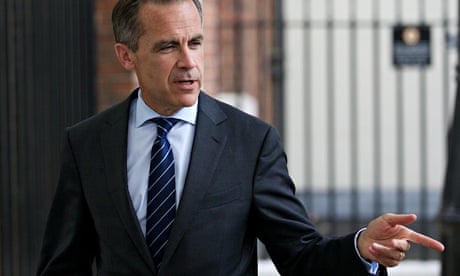
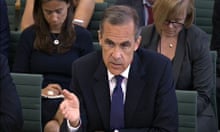

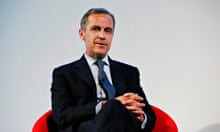
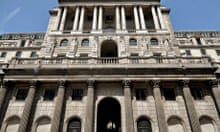
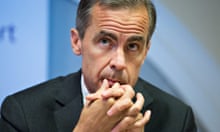
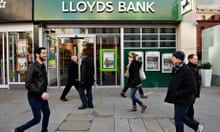
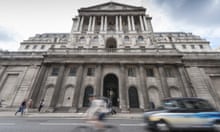
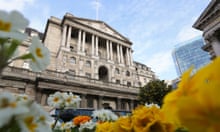

Comments (…)
Sign in or create your Guardian account to join the discussion